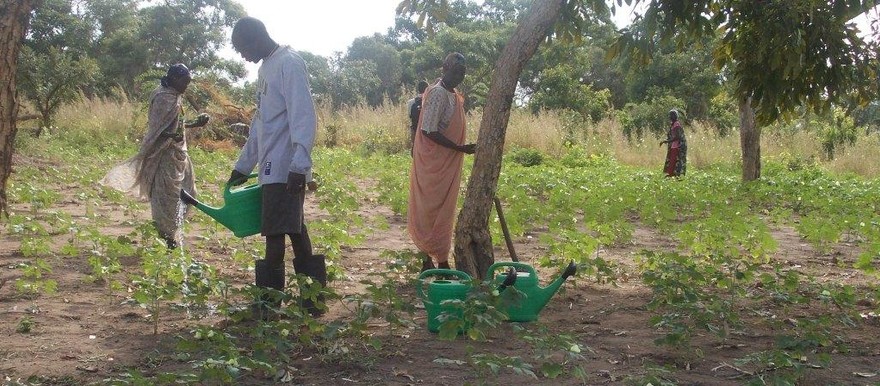The women’s union in Yida refugee camp has started a communal farm in order to support dependents of women and war widows. The leader of the women’s union in the camp told Radio Tamazuj that the project has begun with small-scale vegetable planting, but they expect the effort to expand.
“We planted okra, onion and tomatoes,” she said.
Hosna Nur, the union chairwoman, explained that when the refugees first came to the camp life was very difficult. They used to go many miles into the bush to fetch firewood and cut grasses to sell so as to have some money to pay to mill their sorghum.
“Now there is no more grass, all are burnt down, no more way to supplement the family income. So we sought something else to help us,” she said.
Hosna Nur noted that that the majority of women in the camp are taking care of many orphans, so she encouraged international organizations to support the project.
“Women are facing a lot of problems, because the war orphans are left in the hands of women, and to feed them is a big problem because of the difficult life in the camp,” she said.
She pointed out that they are facing the problem of shortage of water, pests and cattle trespassing into their farm.
She called on the authorities to help them with pesticides and wires so that they can enclose the farm to keep out trespassing cows. “The water point is also very far and women are getting difficulties in getting water for irrigation” she said.
Hosna added that despite the challenges they are facing they are very determined to move forward with their vision because it is the only way to help women out of the difficulties of supporting their families without the support of their men.
She calls for help from the NGOs in the area to extend support to their agricultural projects, and to provide them with seeds.
The United Nations refugee agency (UNHCR), on the other hand, says that refugees should stop farming and leave the camp because it is too close to an international border. The agency has a policy not to provide seeds or tool in Yida camp because this would ‘fix’ the refugees in a dangerous location.
UNHCR Spokesman Adrian Edwards said in Geneva that the agency is establishing alternative sites to move refugees from Yida once weather conditions improve. He stated on Monday that UNHCR together with the United Nations Mission in South Sudan (UNMISS) made an exploration by helicopter to inspect a number of new camp locations proposed by the Government of South Sudan.
According to UN figures, the numbers of refugees from South Kordofan and Blue Nile states in South Sudan is about 175,000.
Photo by Radio Tamazuj: The new agriculture project in Yida Camp, South Sudan




